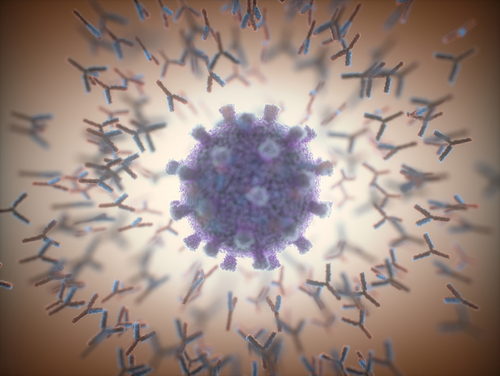
ACTIV-2, a study sponsored by the National Institute of Allergy and Infectious Diseases (NIAID), has begun phase 2/3 trials to evaluate two monoclonal antibody therapies that could help those with mild or moderate cases of COVID-19.
The twin antibodies are known as BRII-196 and BRII-198, both developed by Brii Biosciences. They utilize synthetic versions of the antibodies humans naturally produce to bind to viruses and prevent them from infecting cells. Participants are being enrolled worldwide. With an independent Data and Safety Monitoring Board (DSMB) overseeing, the trial will determine if these therapies prevent either hospitalization or death over 28 days after study entry.
The ACTIV-2 study is designed to allow researchers to observe therapeutics’ efficacy and safety in small groups of volunteers before administering them to a larger group. The goal is to find a treatment capable of reducing the duration of COVID-19 symptoms and eliminating the presence of viral RNA in the body. While the trial will begin with 220 participants with mild or moderate COVID-19, if it progresses to phase three, 622 additional outpatient volunteers will be enrolled.
To begin, half of the participants will receive BRII-196 and BRII-198 through intravenous infusions, while the other will receive placebos. Participants will be assigned at random, and clinicians will track their condition for 72 weeks.
ACTIV-2 has been running since August, however, when NIAID began analysis of another monoclonal antibody, LY-CoV555. The Food and Drug Administration consequently granted it emergency use authorization for treating mild to moderate COVID-19 in adults and children over 12 years old and who are deemed high risks for progressing to severe cases or hospitalization.

